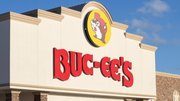Article
Retail Roundtable: Sam's Club offering SBA loans
Is this a natural extension of the brand, or is the company overextending itself and getting away from its retail roots?

July 6, 2010 by James Bickers — Editor, Networld Alliance
Sam's Club recently announced that it is partnering with Superior Financial Group, a Small Business Administration lender, to offer small business loans to its members. Loans would be offered from $5,000 to $25,000.
The retailer has always made efforts to serve its business members — offering discounted merchant credit card processing, for instance — but the foray into lending is a new one for the company. Is this a natural extension of the brand, or is the company overextending itself and getting away from its retail roots? We posed that question to the Retail Customer Experience bloggers, and here's what some of them had to say:
Bob Phibbs: Great publicity stunt that looks pretty interesting. I think it is smart publicity that ties their desire to help small businesses compete to their brand. With this move they by default become the preferred big box vendor for small business over Costco. Will it move the needle of sales? Early reports are no but it is putting them in a good light versus last year when they pulled out of Canada.
Mike Wittenstein:For years, Sam's Club has been an advocate for small business. Of course, small business makes up a large portion of its sales, particularly restaurants and stores. And better running businesses make better customers. Sam's Club has also been a regular responder in times of disaster. Put the two together, credit crunch plus small business, and it's no surprise that Sam's is now in the finance business.
While providing SBA loans to small business is not "mainstream retail" by any stretch of the imagination, neither are car sales, boat sales, auctions, and many of the other services Sam's already brings to its members. Sam's Club has a track record of reducing the complexity of difficult transactions, which may be what it's doing with SBA loans. Many individuals I know have found it difficult to find the right people to learn about SBA loans and to apply for them. Presumably, Sam's will reduce the number of options to streamline the application process.
Personally, I think the benefits of Sam's Club taking on this new business line, even if temporarily, far outweigh the brand risks of becoming unfocused. Millions of people who might benefit from the loans will have access to the right information and to a sign-up point if they don't already have a commercial lending relationship in place.
Adhering to the SBA lending requirements and handling processing through a third party provider means that Sam's isn't at a greater financial risk than it would be with any other similarly-sized transaction.
Dale Furtwengler: There are several factors that strike me.
The first is the implication that Sam's Club is going to be more liberal in their underwriting than traditional banks are. I don't see how, given that they're offering the same SBA loan programs that every other bank has available. Even if they do have some latitude, it's modest.
Second, the size loans that they're discussing are not adequate for companies that typically employ workers. It's the companies that employ workers that are in dire need of financing. It's also where the jobs growth will appear. The Sam's Club profile may help unemployed workers start new businesses, but the question is, can those people be successful? Even if they can, it'll be three years or more before these businesses add to the employment numbers.
Third, most of the lending process is going to be handled online, which doesn't lend itself to developing long-term customer relationships. It doesn't have that personal touch that allows business owners to know that their banker really cares about them. Without that personal touch, I'm not sure how Sam's Club is going to enhance its customers' experience. Indeed, it may cause them to lose existing small business customers who don't get the loan they seek.
Finally, unless Sam's Club is trying to position itself as a one-stop shop for small business, this could be a sign that its strategy is languishing. Often the search for completely new lines of business is an indication that the company doesn't know where to take its existing lines.
Doug Stephens: I’ve felt for some time now that Walmart (and Sam’s) is hitting the wall from a retail standpoint. I mean, 0.9 percent sales growth in what should be "their economy" is dismal. The rally cry that was "Project Impact" was a failure. They’re struggling to get into urban centers with smaller store formats and have ventured into consumer banking in Canada. All, I think to cover the fact that consumer demand has been fundamentally recalibrated and no longer accommodates Walmart’s retail business model. The stores are too big and carry too much stock – most of which is recognized as poor quality. In addition to all this, I think the world is finally becoming sick of Walmart’s "values" or lack thereof.
What do you think about Sam's new offering? Tell us in the comments.
 ChatGPT
ChatGPT Grok
Grok Perplexity
Perplexity Claude
Claude




